InstaFund: moving forward
Expanding focus and impact

“The North American cycling system is a little bit broken, on the women’s side at least,” InstaFund cyclist Isabella Bertold believes. And if you look at the current situation in women’s road cycling in North America, you can certainly see what she means. With races drying up and demand for spots increasing, it’s the teams and their riders that are feeling the squeeze. “One of the biggest issues if you are a North American UCI team is the number of race dates on the calendar,” Isabella went on to explain. “There are well over 70 continental UCI teams just in Europe alone fighting for three or four spots in these races. The WorldTour teams are still looking for points so they send riders to every single race, even if they can’t send a full roster. So whether the team has four or seven riders on the start line, that’s one team spot taken up in that race.”
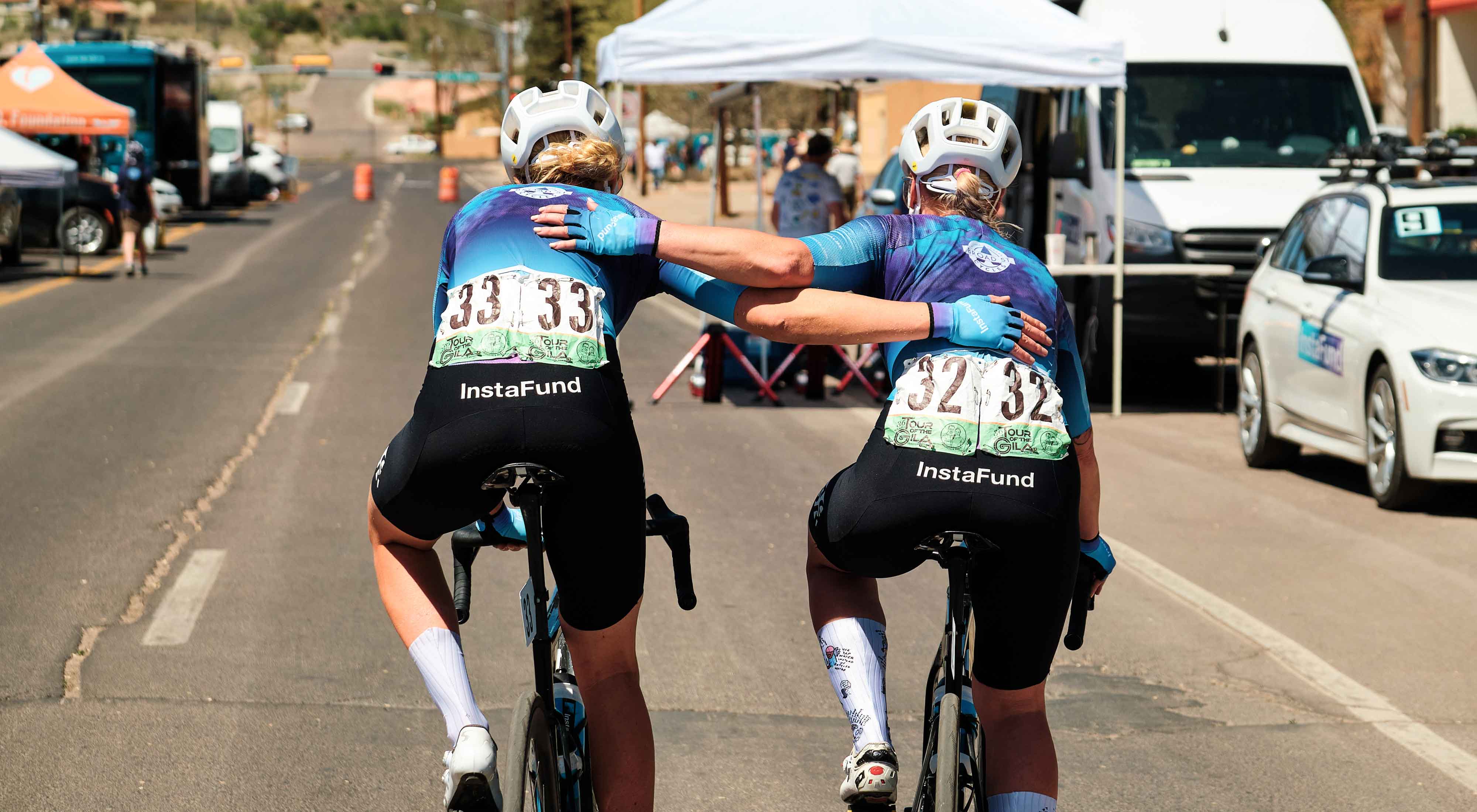
UCI GOLDEN HANDCUFFS
If you are a UCI-registered Continental Women’s team in North America, you are bound by UCI rules, some of which are meant to protect the workforce, but some of which also end up hamstringing small teams in particular.
“We had a very challenging year with more broken bones than we’ve ever had. At Joe Martin we had three girls go to the hospital with broken bones from one crash alone. Often it’s just two riders doing a race because they are the only healthy ones,” Isabella revealed.
One solution would have been to be able to include invited guest riders to help fill out the roster for important races when some of the core riders were sick or injured, but according to UCI rules, UCI Continental teams cannot include guest riders on their rosters. “We get so many guest rider requests every year for races like Redlands, which isn’t a UCI race, and Gila, where we couldn’t even fill a full roster this year because we had so many injuries, but we couldn’t take any guest riders.”
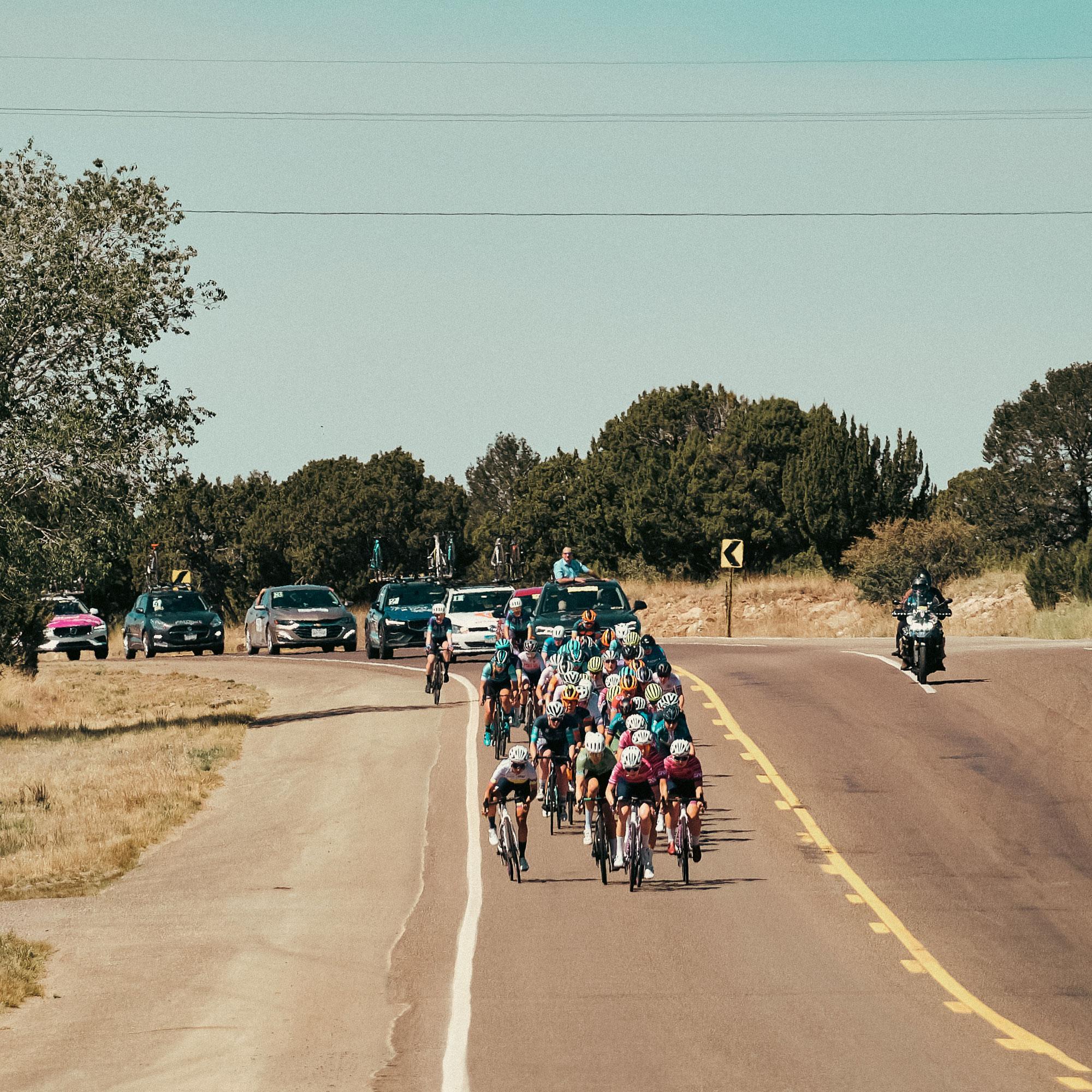
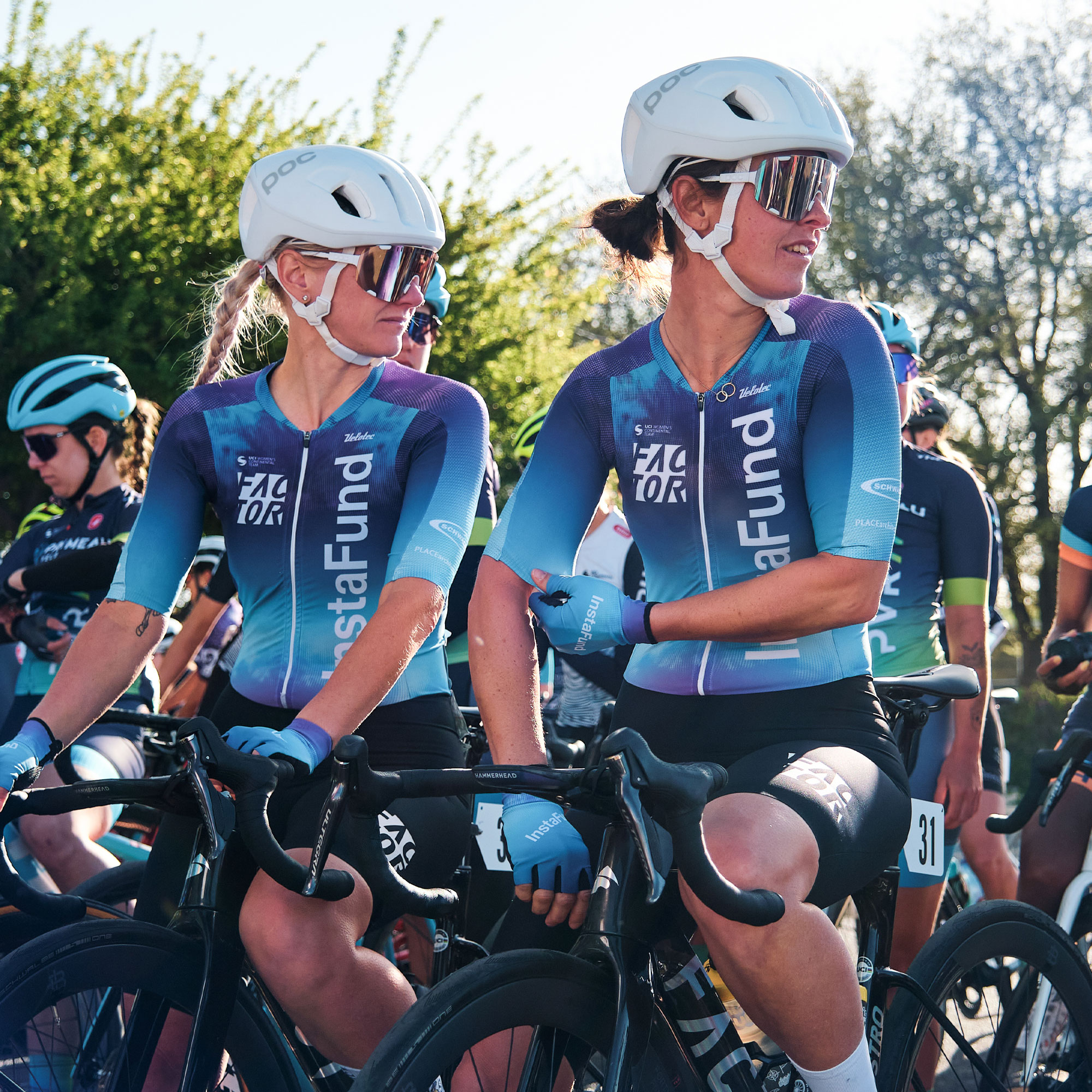
The result is that UCI Continental Women’s teams in North America often find themselves between a rock and a hard place. Getting international racing days is increasingly difficult since UCI Women’s WorldTour teams are sending even reduced rosters to races in order to earn as many points as possible to avoid relegation. That leaves only a few team spots open for most UCI races for which there are well over 70 European-based Continental Women’s teams vying for three or four spots every race. Inevitably, North American-based teams find it extremely difficult to hustle themselves into these few spots.
“And then in North America, there are only so many stage races left in the women’s peloton. We can hit those, sure, but you still end up with riders who want to do their own things anyways, like gravel and mountain bike races,” Bertold explained. “But then you end up with sponsor conflicts. Even if our riders can find a company willing to sponsor them for a gravel race or some adventure endurance ride, you can have all these team sponsor conflicts that come up. You try to manage it because of course you want your riders to do these races if they want to, but you can’t always because it’s complex to manage. The system doesn’t make sense.”
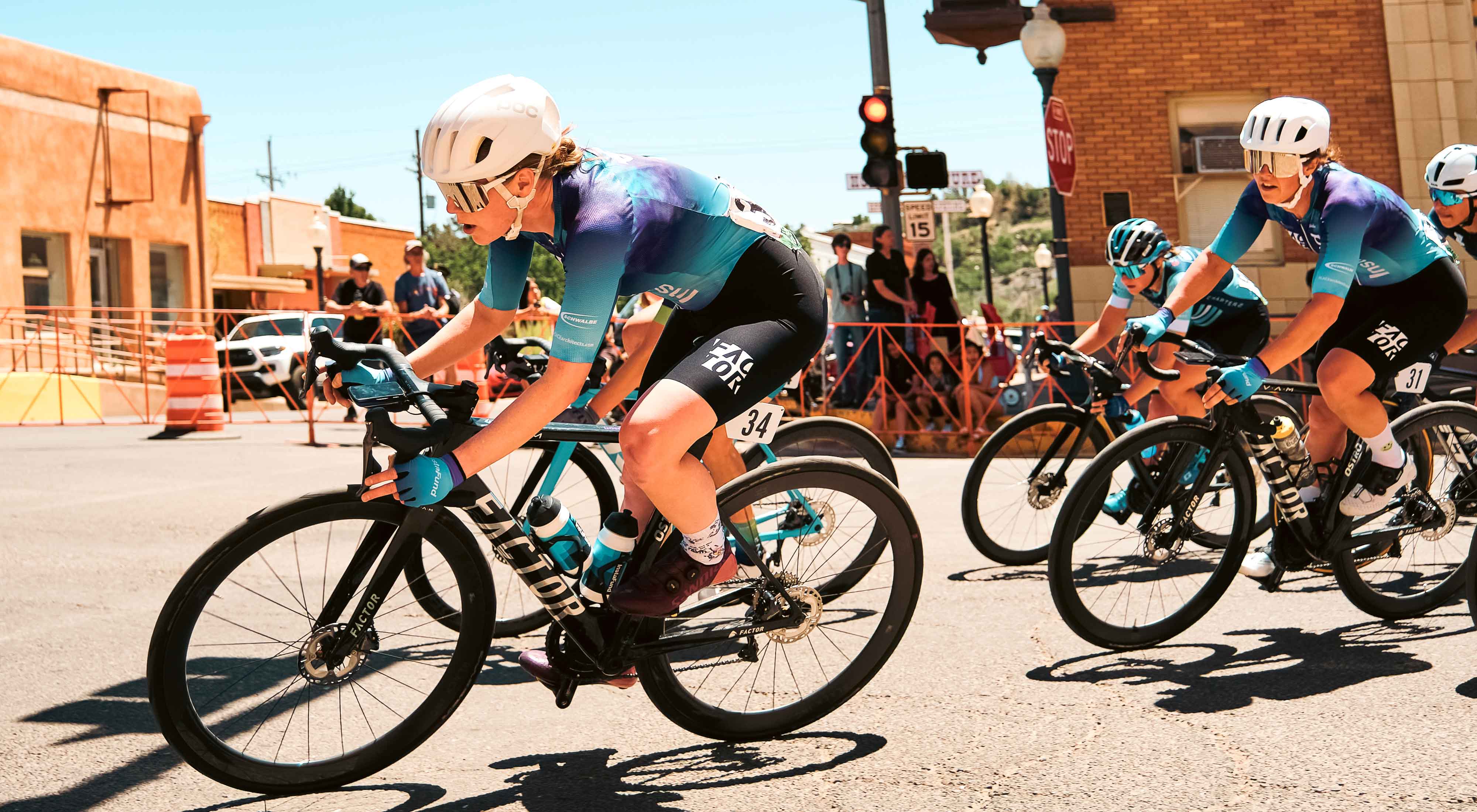
RETHINKING AND RESTRUCTURING
Recognizing that they couldn’t continue racing under these antiquated restrictions, InstaFund Racing’s management took a long look at how they could solve the situation and make the racing more varied and more open for their riders while still keeping team sponsors happy. “InstaFund who is the current title sponsor will be splitting across two teams. There’s our professional cycling team that will stay a professional cycling team, but just have a different backend model. We’ve thrown out everything we think is wrong with the way professional cycling teams are run right now at a Conti level,” Isabella revealed. “There will be a new title sponsor coming in on that side. All our core roster is returning for next year.” What they won’t be anymore, though, is a UCI-registered team. “We are dropping the license since there are so many Euro Conti teams now, getting invites to races in Europe is near impossible, and on top of that, we still pay regular registration fees at UCI races in North America as well, while most the teams we are racing against are not UCI or bound by those requirements.”
ALTERNATIVE THINKING, ALTERNATIVE SCHEDULE
Though the team will still be targeting the bigger stage races in North America like Redlands and Tour of the Gila, they will also be allowing their team of core riders to run their own privateer programs alongside the team’s stage racing program. “We have a roster of nine riders this year. In 2024, we’ll have four core riders who are contracted specifically for the races and a few team camps that we’ll have, but the riders won’t actually be contracted to the team,” Bertold explained. “So it will be a different model in that sense. It means that if they want to go out and do a gravel campaign with non-team sponsors, they can.” The team itself will also be expanding their sights to include an alternative schedule with gravel and mountain bike races included. “We’ll hit Sea Otter for example as a team for the gravel event. We’ll be doing road, mountain bike and gravel. You’ll see it a lot more than this year, though this year we were supposed to have more of a gravel presence, but injuries made that impossible. And Tulsa will be a team race on the crit side. As well as Gastown, and hopefully Superweek if more of it comes back.”
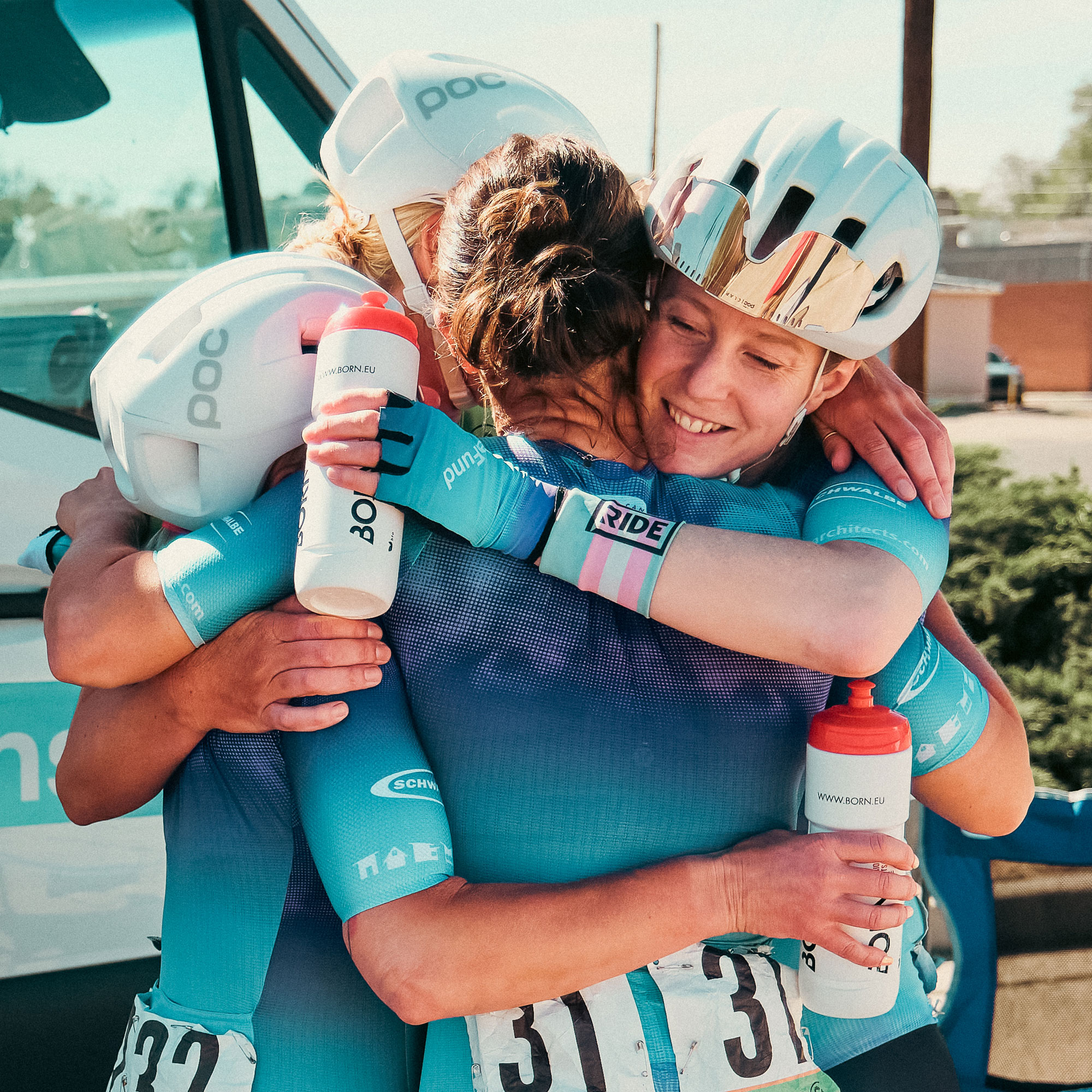
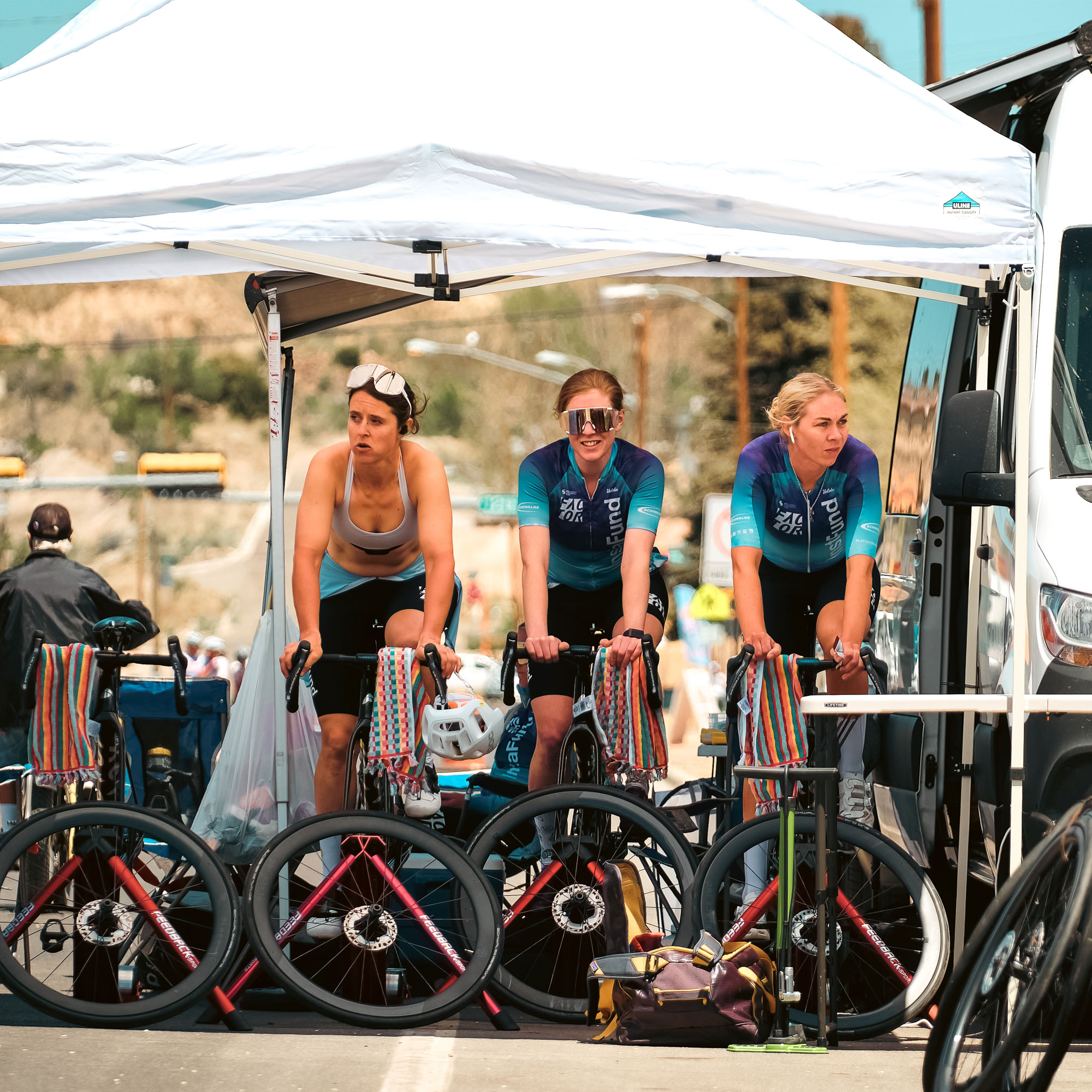
GUEST RIDERS
With just four core riders for the team’s racing schedule, the introduction of guest riders will be essential to the success of the program. It’s a structure that will help the team and riders stay flexible while still building a collective spirit and helping to develop elite racers. “A lot of up-and-coming women riders in North America seem to find the sport later. You’ll get a lot of riders coming out of college sports who find cycling and are really good at it,” Isabella said. “But they are now 24 or 25 and have trouble getting the right experience; how do they build a resume?” Having the leeway to invite these talented athletes to join the team on a guest rider basis makes it possible for the riders to get the right exposure and experience. “We are going to have guest riders at major stage races, which are Redlands, Gila, and Joe Martin. The process of finding these riders will be application-based, and we will include them in our early team camps as well, so they are already integrating into the team. They will not be just a drop in guest rider, but someone who has actually ridden with the team before.”
FOCUSING SUPPORT ON DEVELOPING RIDERS
InstaFund Financial has more in mind than supporting the restructuring of the pro team in 2024. In addition to redesigning the structure of the pro team, they will also be increasing their support of developing riders by coming on board as a sponsor of Ruckus Racing. “InstaFund is going to be supporting the development team, Ruckus Racing, which focuses on developing Cat 4 and Cat 3 riders,” Isabella said. “They are very focused on skills clinics and running expert sessions so that as women move up into the ranks once they hit cat 1 and 2, they have a good experience. Because there is also quite a skills gap in North America.” The nascent program has already found quick success with riders they have helped develop. They had one rider from their program who entered the 2023 Gastown GP and she got a top-15 in the road crit racing on a gravel bike!
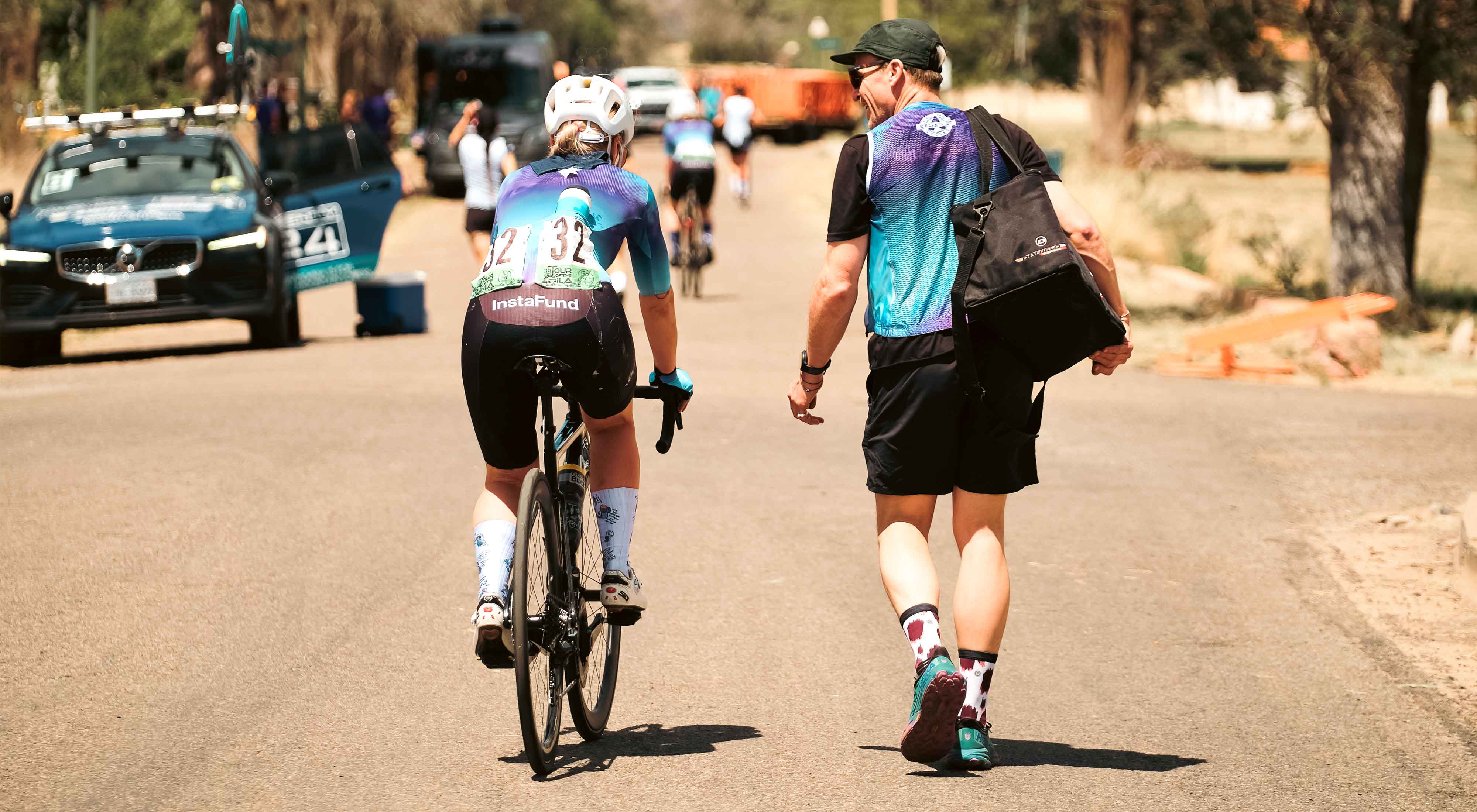
GRANTS FOR WOMEN RIDERS
A third element in the team’s efforts to expand their positive impact in the women’s peloton is what Isabella is calling her community giveback initiative. “I am going to be launching three grants for female cyclists. Two of them will be to support their first stage race and those will be for $1500 just to help cover costs like flights, accommodation, things like that. The third one will be a $3000 grant for coaching,” Isabella explained. “I think it’s interesting when you are little more on the back end of a bike team, you sometimes see a little more and are aware of more. And I am often surprised how many female cyclists who are racing but their biggest barrier to a coach or better coaching is cost. It’s especially true for female cyclists, just having a really good coach can help them through so many things that will accelerate the learning curve.”
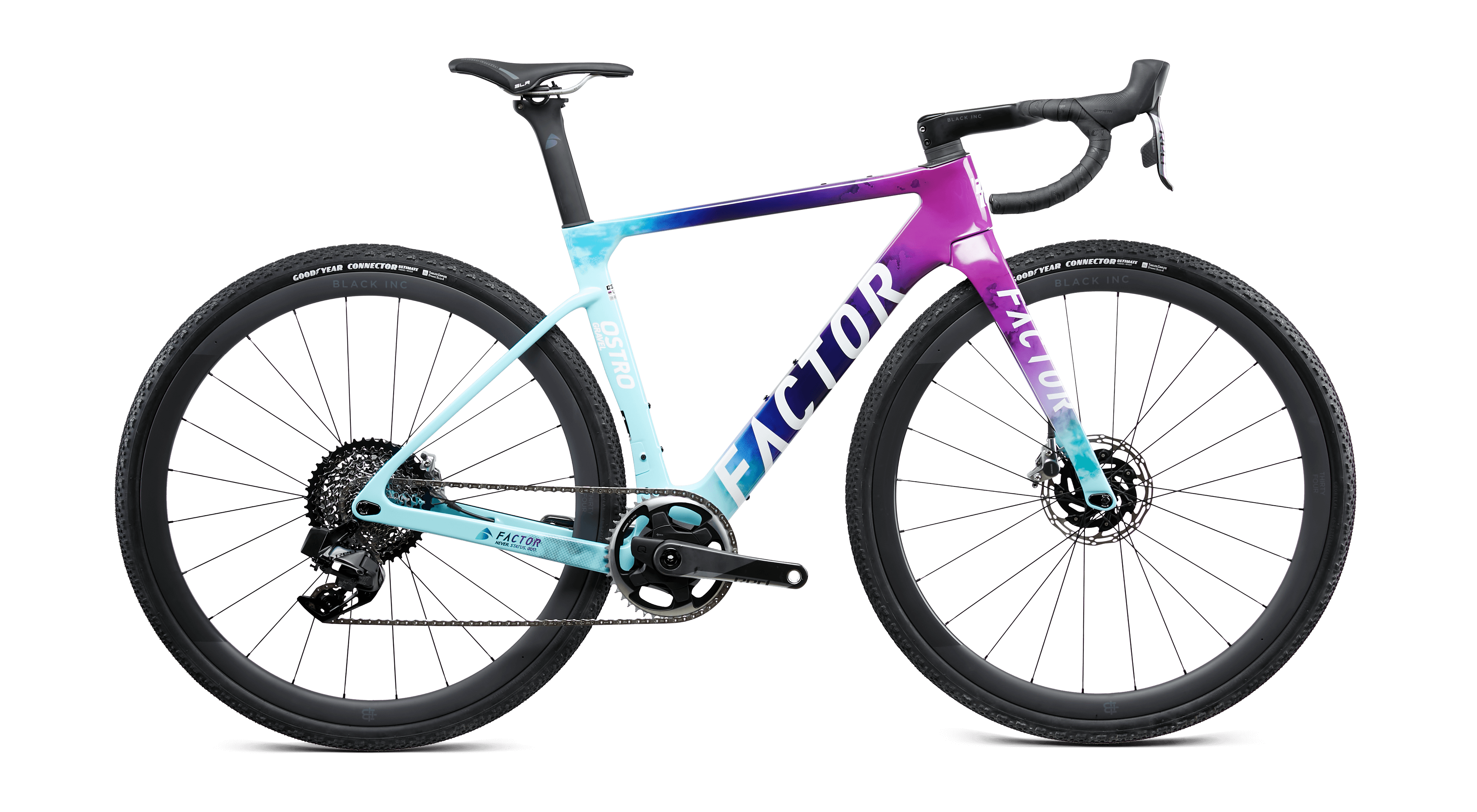
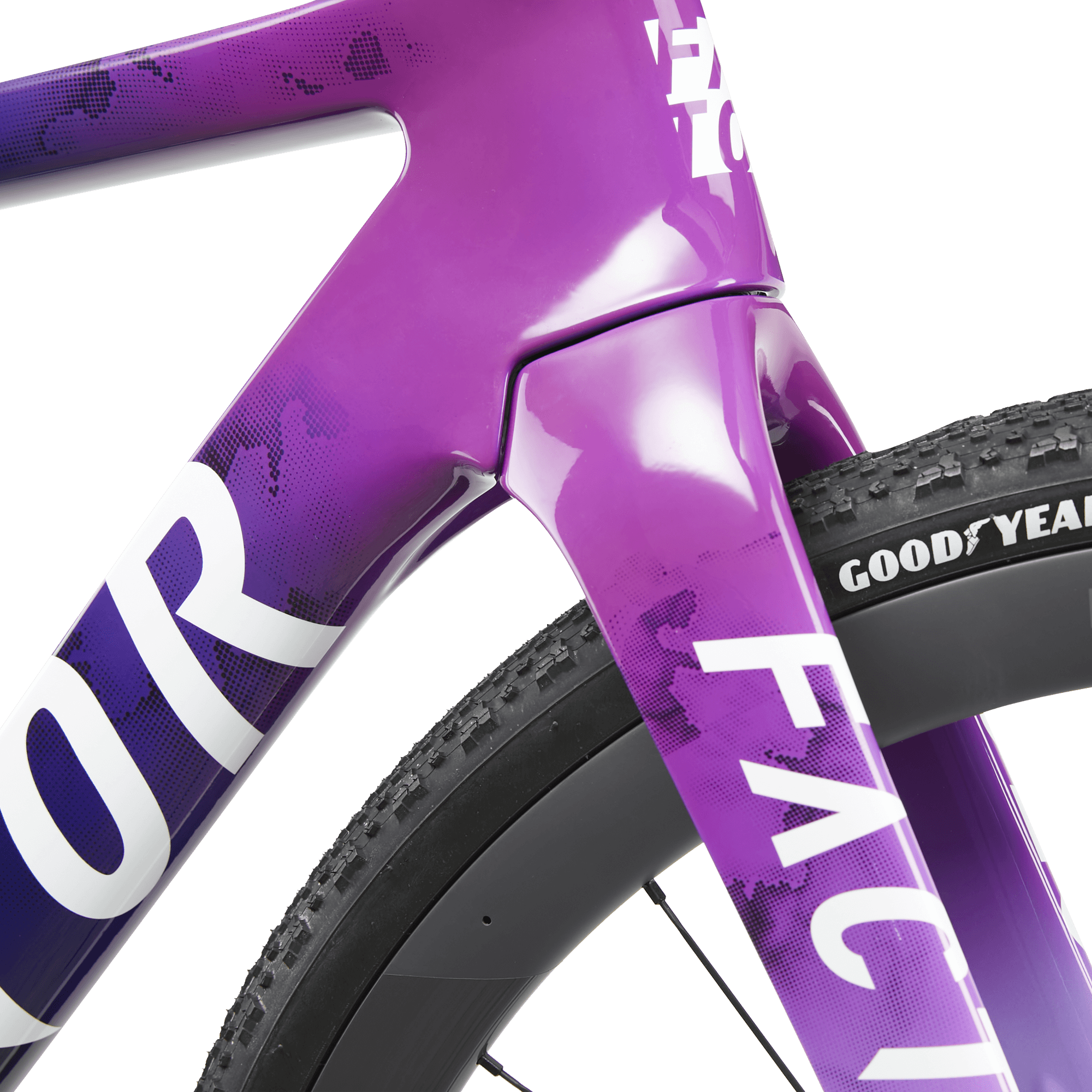
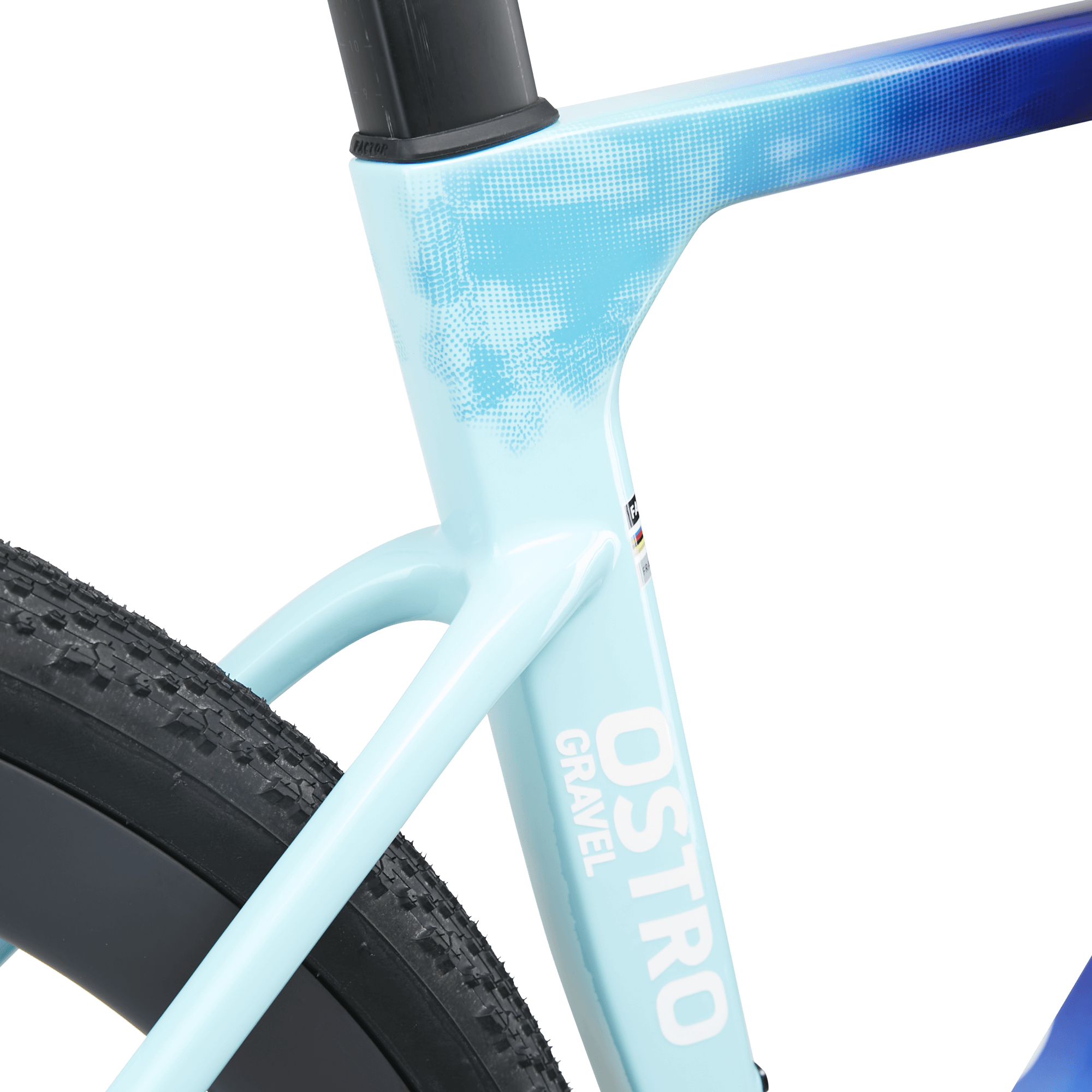
ISABELLA AT GRAVEL EARTH BARCELONA
Though the road racing season in North America is pretty much tapped out for 2023, Isabella still has some big personal ambitions for her racing for this year through 2024 and beyond. “Personally, I will be doing the stage races with the pro team, but I will also be focusing more heavily on some privateer gravel events.” First up comes quickly at the Gravel Earth Barcelona this September. “I’ll be racing the Gravel Earth Barcelona on an OSTRO Gravel with the Oceanic Edition paint scheme that my OSTRO VAM road bike had last year for my charity ride from Saint Tropez to Cadiz,” she said. “The idea was to have that bike for me for the Gravel Earth race in Barcelona this year. It will be a nice thing to have that bike in the Ocean color for the Gravel Earth series in Barcelona. That seemed quite poetic.”
Follow them to keep up to date with their season progress and race updates:

© 2026 Factor Bikes. All rights reserved / Privacy Policy |Terms
